Dr. Strangles: Brittany Allison
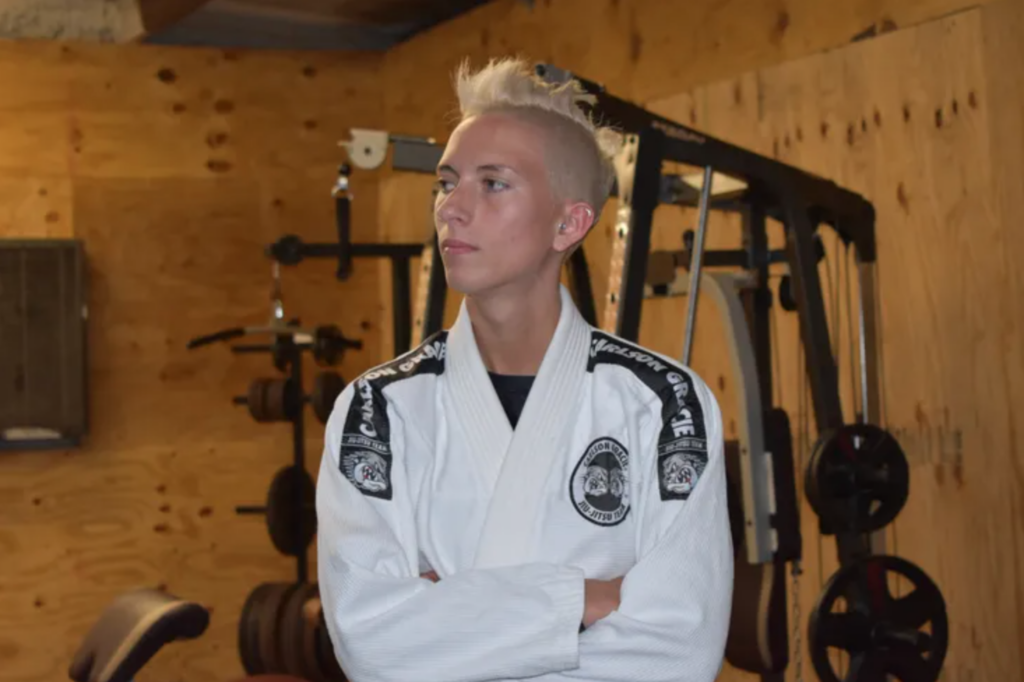
Story and Photos By Evelyn Sutton
Brittany Allison Haage is a young woman with a big dream. A dream of helping people. She’s a graduate student in the doctoral program for clinical psychology at Florida Institute of Technology. When she’s not attending to patient’s mental health needs, she’s on the mat learning how to choke people. A trained killer with the mind of a doctor. What could the world of therapy and the world of Jiu-Jitsu possibly have in common? Well, for starters, they have Brittany. And both are lucky to have her on their corner.
JM:Tell us about yourself. Where are you from and what does a typical day in your life look like?
BA: I’m 28 years old and a current graduate student in the doctoral program for clinical psychology at Florida Institute of Technology. I’m a year away from obtaining my doctorate. I’m interested in working in integrated healthcare settings, such as medical hospitals and clinics. This setting allows patients to receive both their medical and mental health needs all in one location, which benefits the connection of mind and body. Exercise has always been part of my life and in February 2020, I decided to give martial arts, specifically Brazilian Jiu-Jitsu, a try. I just started my residency at Henry Ford Hospital in Michigan where my work days consist of meeting with medical professionals about patients’ mental health, and working with patients themselves. It’s a fast-paced environment and not what typically comes to mind when you think about what psychologists do in their careers. I love the medical field so path was the perfect fusion of my passion for psychology and medicine. You have to be able to adapt to various situations quickly and you don’t always know who will walk through the hospital doors. I think that adaptability also applies to Jiu-Jitsu because you have to play off of the actions of your opponent. You have to be able to react and think on the spot. After my typical work day is when I usually get time to exercise.
JM: Have you trained martial arts before and what attracted you to BJJ?
BA: Before I started I had zero experience in martial arts. As a kid, I wanted to try but my mom was too worried about injuries. As an adult, I took it in my own hands, and decided to give it a try and fell in love with it. I actually came to Carlson Gracie – Melbourne, to begin training kickboxing. Coach David made the observation that he thought and somehow knew, I would end up preferring Jiu-Jitsu. I was skeptical but I have to admit, he was right. I took several classes of kickboxing and Jiu-Jitsu right after. I found myself drawn more to the techniques and sport of Jiu-Jitsu. It fits my need of being technical and analytical. Initially, I was attracted to the exercise aspect, however, I was also interested in it as a means of self-defense. I’m a small woman and while I can’t speak for all women, I know many have experienced situations in their lives when they felt physically unsafe and unable to protect themselves. I wanted to do something about that fear. I needed to build the confidence that I can get myself out of a potentially dangerous situation, should it ever arise.
JM: I remember my first Jiu- Jitsu class as having no clue what was going on. How was your first class?
BA: In my first class of Jiu-Jitsu, I was terrified and felt so awkward because I had no idea what I was doing. I did not think I would ever understand the sport or know what to do in various positions. I was worried I wouldn’t do well and thought maybe I should just stick with kickboxing. However, I’m not a quitter, so I wanted to give BJJ the proper chance. I asked other teammates how they felt when they first started, and many admitted to feeling similarly as I did at the time. That gave me comfort and interest in continuing to try it.
JM: What impact has Jiu-Jitsu made in your life, as a woman and individual?
BA: Personally, Jiu-Jitsu has not only increased my confidence in my ability to use the techniques as physical defense, but it also increased my confidence in general. I’m in the best shape that I probably ever have been in, my entire life and I am not above admitting that I want to look and feel good about my appearance. As for self-defense, it has made me feel safer. I find myself walking with a level of comfort in the knowing that I train and can defend myself. As a woman, it can be easy to feel intimated by another person based on their size and strength. In fact, certain men will use their size and strength to intimidate us and make us feel unsafe. We may feel coerced into certain situations because we fear the repercussions if we don’t comply. We often submit rather than resist because of fear. To me, it’s a sickening feeling that a woman might be put in situations where she will do something she does not want to do, because she is scared of the reaction if she protests. Even if it is not a situation where someone has direct control over you, it can still be very scary and many of us think the worst of what could happen. As women, we understand that not all men are bad people. However, all women, at some point, worry about a potentially violent and dangerous situation involving the opposite sex since typically women are at a physical disadvantage. BJJ levels the playfield. Jiu-Jitsu has been an absolutely invaluable experience and I wish I would’ve begun my training sooner. However, now is better than never.
JM: How long have you been training?
BA: I have been training for roughly 6 months. I am currently a white belt with two stripes. I have already noticed many positive changes in myself. I have also had others come up to me and tell me they have noticed positive changes too. That is an amazing, heart-warming feeling. When you train consistently, time seems to fly by. I do my best to train at least 3 days a week. Training consistently truly makes a difference, keeps muscle memory in check and allows me to hone my technique.
JM: Do you prefer gi or nogi?
BA: I have recently been considering this question. At least right now in my training, I find it hard to say. There are benefits of both. Nogi is crucial because it allows you to learn movements that could be executed in regular clothing. I also find it easier to maneuver my smaller body with my longer limbs in no-gi. However, it can be more challenging without the gi, since you don’t have that extra material to grab onto for leverage. Training in gi provides many different variations of places and fabric you can hold or manipulate to your advantage. I find this especially important for a smaller fighter like myself who may rely more on those things, at least as a beginner. I find wrist control and chokes easier in gi for that reason.
JM: Favorite position and favorite submission?
BA: My favorite position is S mount. My long limbs provide me some advantage to get my legs in the proper position. I have the ability to swing my legs over the other person fairly easily with proper technique. My current favorite submission is the Darce Choke from the position of holding the opponent in my guard. I like how if I can thrust my hips to break their balance and posture, while also getting arm control quickly, I can get to the submission fairly successfully. Here is another position where I feel I can use my long limbs to my advantage to keep guard and hold for the choke.
As women, we understand that not all men are bad people. However, all women, at some point, worry about a potentially violent and dangerous situation involving the opposite sex since typically women are at a physical disadvantage. BJJ levels the playfield.
JM: What things do you find hard in training?
BA: One of the most difficult aspects of Jiu-Jitsu for me is maintaining and applying pressure. I really need to continue to fine-tune my technique because of my small size. I easily get swept when I’m on top. I need to be more aware of my arms and legs and keep them tighter on the opponent to block those moves and maintain my position. As coach David always tells me, “You do not want to be in a bottom position because of your smaller size.” I want to get better at utilizing the body type I have, to my advantage.
JM: And what do you find easy, what comes natural to you?
BA: While I don’t think I can accurately say any particular technique is easy for me as a beginner, I can say that I have considerable flexibility that allows me to get into certain positions readily. I think once I get the techniques down, positions and submissions involving my legs will be a force to be reckoned with. These will hopefully include certain arm bars, triangle chokes, and omoplatas. My flexibility also allows me to withstand and sometimes even narrowly escape out of compromising positions that would otherwise lead to submissions. There have been times where an opponent will even abandon a move early because they are not getting the submission as quickly as they would on someone who is not as flexible.
JM: You recently had your very first BJJ competition. What was the greatest lesson you took from it and will you compete again?
BA: One of the most important lessons I learned from competing was that it takes an incredible amount of courage to compete at all and to fight off the nervousness enough to be able to concentrate and execute what you know. There were definitely moments of panic where I felt like my nerves interfered with my ability to perform. It was also very different competing against strangers from other gyms because unlike with my teammates, the competitors are not as concerned with injuring you. That does not mean they intend to injure anyone. There is just a different type of aggression in a competition setting. I definitely learned a lesson in needing to channel that type of competitive aggression. I noticed several times when I stopped myself from executing moves that I thought could possibly really hurt the other person. Afterwards I realized that’s just part of the sport and the opponent probably would have done the same thing to me. The moves do not have to be “dirty” or unsportsmanlike, but it is the degree of force and discomfort you have to be willing to implement if you want to win. A positive thing I definitely noticed was the conditioning our gym has us do because I barely broke a sweat while other competitors from other gyms were drenched. This is an area I did feel confident about and was thankful for that part of training. Overall, I learned I still have a significant amount of courage and confidence to build, especially in the case of potential future competitions.
JM: What does it feel like to be a woman on the mat in what is still a male dominated sport, with women in Jiu-Jitsu classes often outnumbered ten to one?
BA: At first, it was definitely a little intimidating. I have never really had any issues with playing sports with men so I think that has greatly worked in my favor. However, I had zero experience in participating in a full-on contact sport with men, which is very different. There are many times where I feel like I need to prove myself or push myself harder to be perceived as being as good as a man of similar rank. This is pressure I place on myself though, because I am lucky that my gym has never made me feel like that was the case. I often think as women, we feel the need to overcompensate just to be appreciated in a positive manner, whether it be physically or intellectually. Anytime you are in the minority, I think it is normal to feel that pressure or intimidated by being outnumbered. Nevertheless, I think there are several things we can do to change that. First, we need to build and maintain that confidence in our abilities and challenge those feelings of being intimidated by the ratio of men to women in the sport. Second, we can strive to change that ratio, decreasing the discrepancy between the number of men and women in the sport. We can and should encourage more women try Jiu-Jitsu. It may never be a one to one ratio, but that does not mean we cannot strive for it and recruit as many women as we can. Personally, I have seen many more women join our gym and that makes me really happy and proud that our gym encourages it. It is very comforting to witness that we can challenge the notion that this sport is just for boys and men. We are part of that change and I think that in itself is inspiring.
JM: How important is having a “female squad” you can lean on for encouragement and support at your home gym?
BA: Having other women to train with is great because it encourages solidarity when participating in a sport that, as we discussed, is dominated by men. It helps build up the confidence that we as women can practice this sport and we can do it well as long as we train just like the men do. Therefore, I think it is crucial to have that support from other women while also being a part of the team, physical sex and/or gender aside. That means performing the same warm-ups, drills, techniques, and rolling as the men. I love to see women building each other up to feel comfortable with training with men and training with women. We cannot expect special treatment if we want to be taken seriously in this sport. The team needs to be able to function as one unit. That being said, it may take some women more time to become comfortable with training with all the other men and I think that is okay too. Everyone will have different speeds at which they can develop that comfort and oftentimes, it may be due to prior life experiences. I think it is everyone’s job in the gym to support that process and allow for the positive exposure to training work its magic. The women who have more experience can act as gatekeepers for the newer women and model what it’s like to work safely and comfortably with men, while also being there to listen to specific concerns they may have. Validation and patience are incredibly important in this situation because you never know what someone else may be working through or trying to overcome. Other women will have similar experiences and/or perspectives and look to each other for support, encouragement, and comfort.
JM: What do you consider the greatest challenges for women in Jiu-Jitsu?
BA: I think confidence, the need of being proficient in technique, and physical limitations. Women on average, are typically smaller in size than most men. This puts some of us at a significant disadvantage. Great technique in Jiu-Jitsu allows for size not to matter as much. We need to rely heavily on technique because we often cannot muscle our way out of positions like many guys may be able to do. We really have to fine-tune all of the technical aspects, especially if we are talking about a self-defense situation.
JM: Do you have role models?
BA: I do not have a role model that is currently in the sport, but I do have the most important role model in my life, my father. My dad has provided me his unwavering support in everything I do in life since the moment I was born. He taught me how to be a good person that cares about others. He has inspired me to be a better person and a positive force in the world. I have always been a tomboy and he has never encouraged me to be anything other than myself. He has always supported my education and my passion for physical fitness, no matter which form. His love and support throughout the years, have made me want to never stop improving. Because of him, I feel like there is little that I could not do if I set my mind to it. I often remind myself how lucky I am to have had such an amazing person in my life as my dad.
JM: What are your future plans for BJJ?
BA: Due to having to move to Michigan to complete my residency, I plan on finding a new gym that can continue to help me become better in the sport and foster a similar environment for growth. While I will definitely be busier, it is very important to me to still make time to train.
JM: What is your best advice for women in BJJ?
BA: There will always be many reasons you can find to not do something, but you need to think about the reasons you can find to do something. Eventually, you may even find that the reasons to continue or begin training in this sport outweigh the reasons not to. Also, do not be afraid to look to other women for guidance as it is very possible those women were once in a similar position. When it comes to performing a certain move or technique during training, make it a point to ask questions and practice. You will feel more embarrassed getting caught performing it incorrectly than you will admitting you need extra work on something.
JM: What can you expect when you first start training jiu jitsu?
BA: Something that can be very intimidating for people is the risk of injury and discomfort. Getting scraped up, mat burn, bruises, etc. is part of the process so yeah, it does hurt sometimes. Eventually, you get used to most of it (within reason) and wear those wounds as badges of honor. At the very least, your body becomes better at tolerating some of the scrapes and bruises and your skin becomes tougher with more exposure. Sometimes your limbs or joints may get tweaked, so it is important to listen to your body and recognize your limits. That being said, understand that the mild ones are normal, and it should not scare you away from the sport. Also, the chokes often look much scarier than the reality of how it feels. That doesn’t mean chokes don’t hurt because they definitely are unpleasant. However, that is why tapping was invented as a signal before you pass out or get injured. It is best to keep an open mind and not to let your fears get in the way because you will be surprised what your body can withstand and overcome.
JM: Do you have to be incredibly muscular or bulky to be good?
BA: No! Brazilian Jiu-Jitsu was described by my coach to me as utilizing your entire body against the other person’s body part. It is all in the technique, which I personally found comfort in. Muscle definition is nice to have but not a requirement. You will also find yourself getting in better shape by training regularly.
JM: How long will I need to train to get really good or progress onto higher ranks?
BA: Honestly, the highest ranks in the sport will tell you that the process never ends. There will always be techniques to fine-tune and new things to learn. If it was something that you can just simply master and be finished, what is the real challenge or respect in that? As someone in higher education, we are always learning and learning how to continue learning. It is important to stay up to date and consume as much knowledge and information we can to improve. As for ranking up, it will all depend on the gym at which you train. However, this is a sport where patience and dedication is a virtue. You cannot get too wrapped up in the next belt and when you will earn it. That can definitely be easier said than done. Instead, try to focus on the changes you notice in yourself and celebrate those small strides in progress. It would be a disservice for your coach to simply hand out new belts before you are truly ready just because you feel it is time. Remember, there is a reason the coach is at their rank where they can teach you. You do not know more than your instructor so it is important to respect the process. I personally like to ask if there are specific things, I can focus on in training. Ask questions with the intention of improving, not showing off your belt. And when you do increase in rank, celebrate that tangible representation of your hard work, just do not let it get in the way of the reasons why you are training.
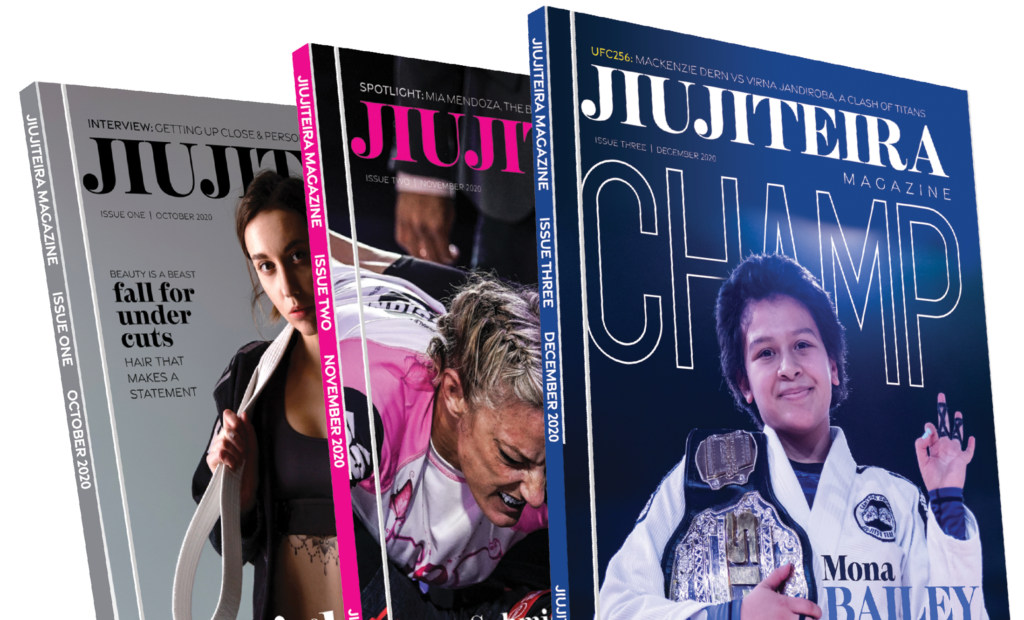
Our printed magazine is full of extraordinary women with extraordinary stories, get your printed copy via mail today >


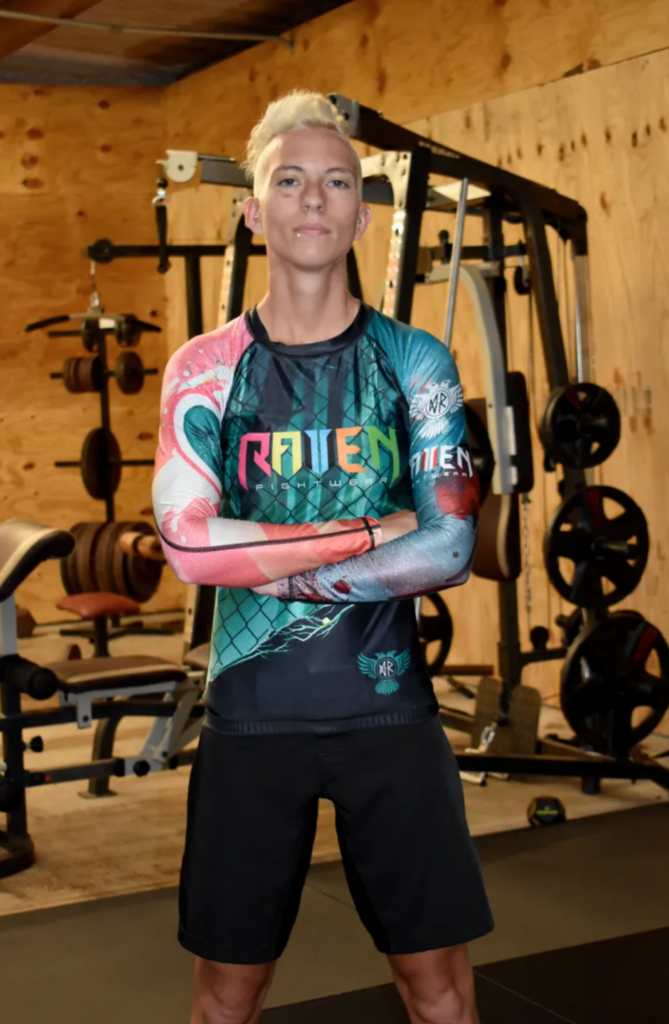
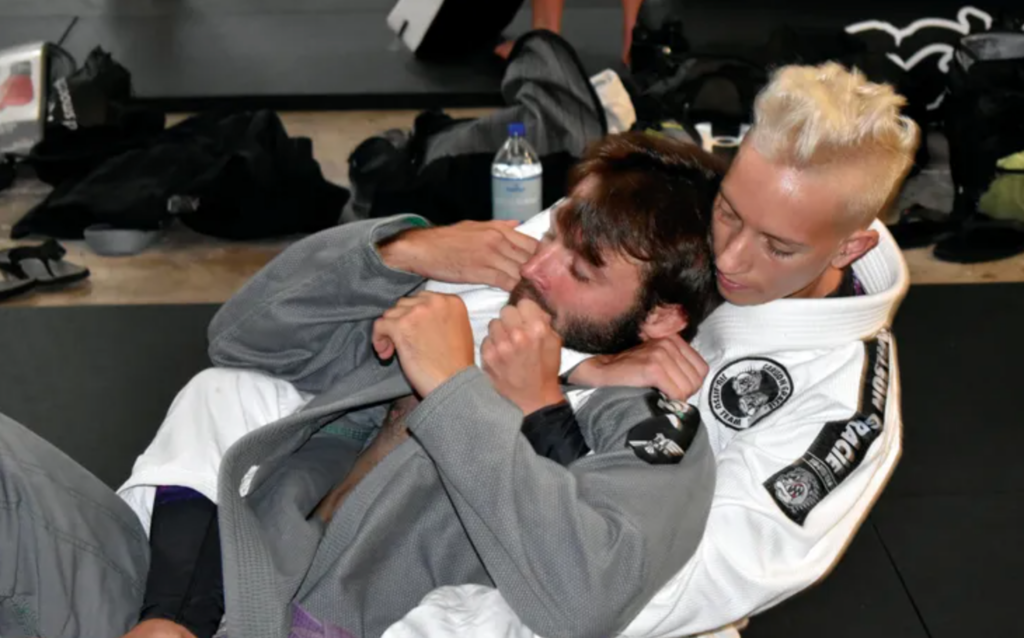
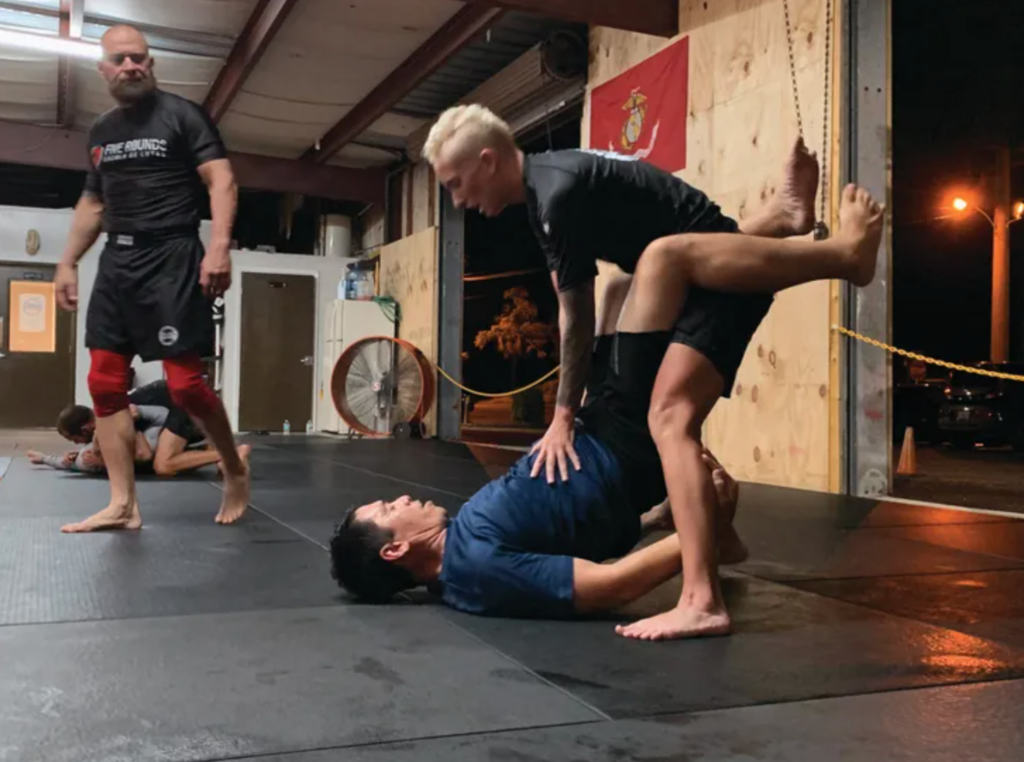
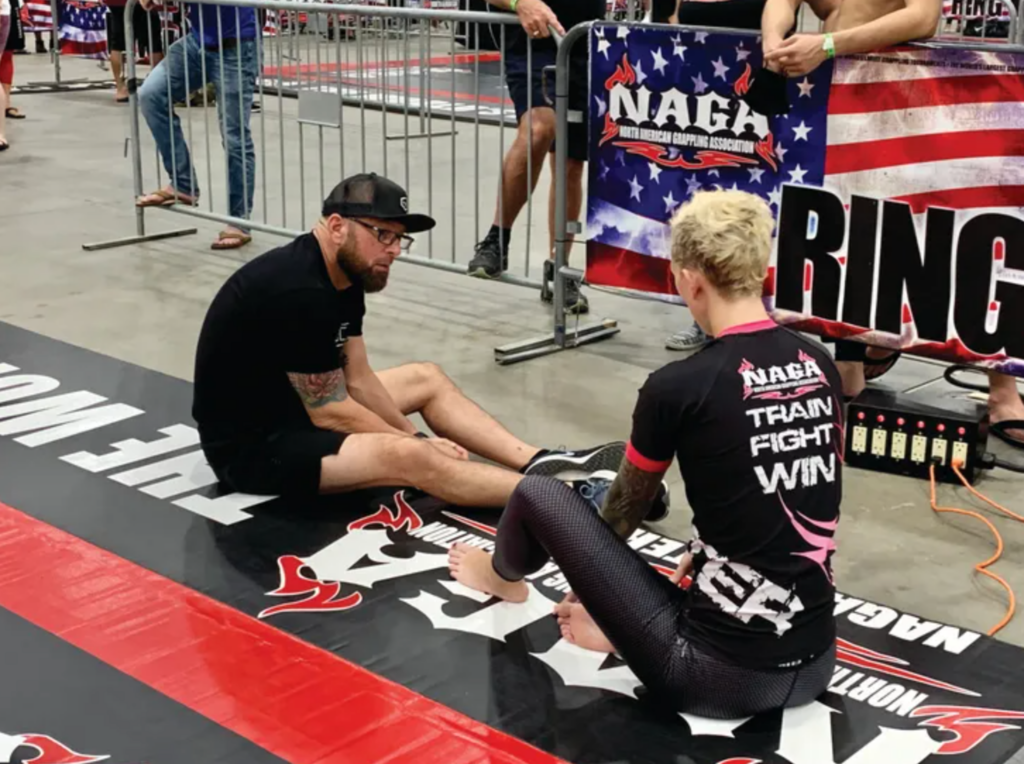
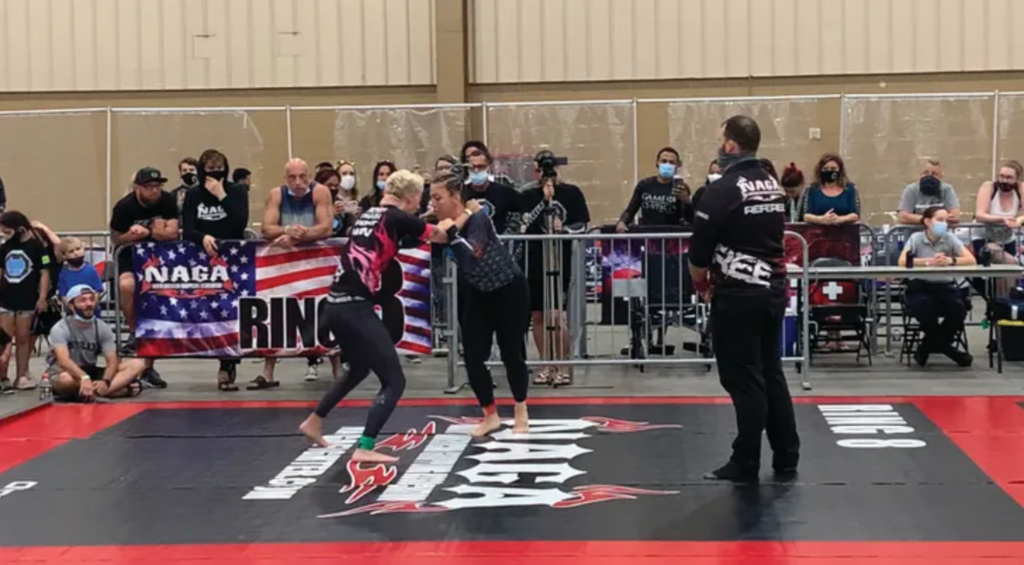

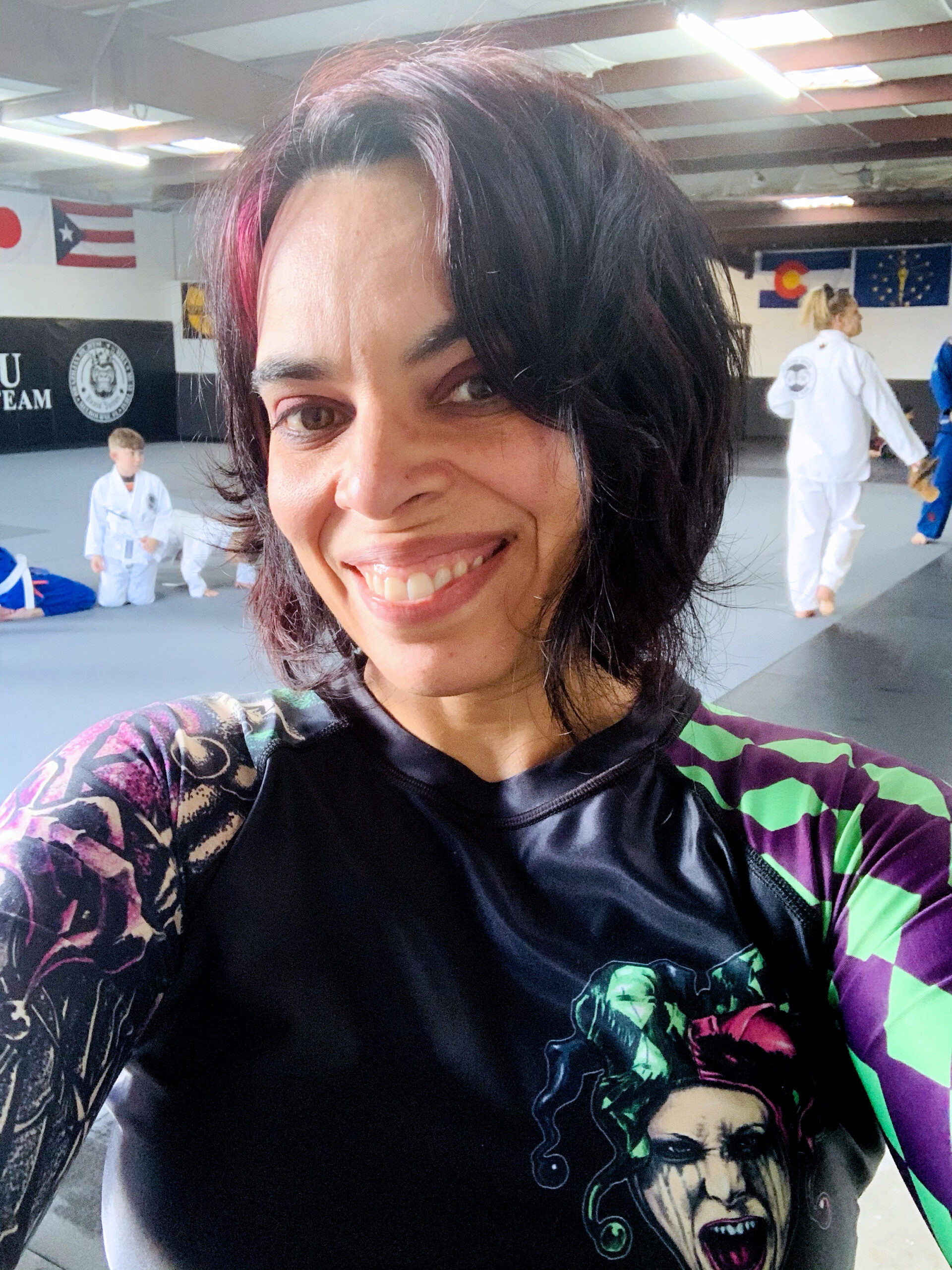
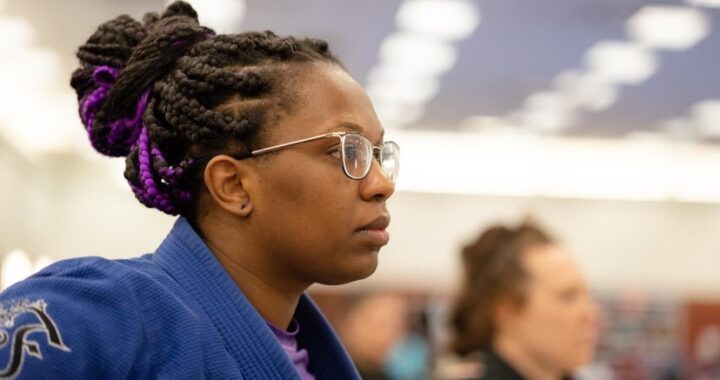 Torrie O’neil, Big Girl, Big Heart
Torrie O’neil, Big Girl, Big Heart 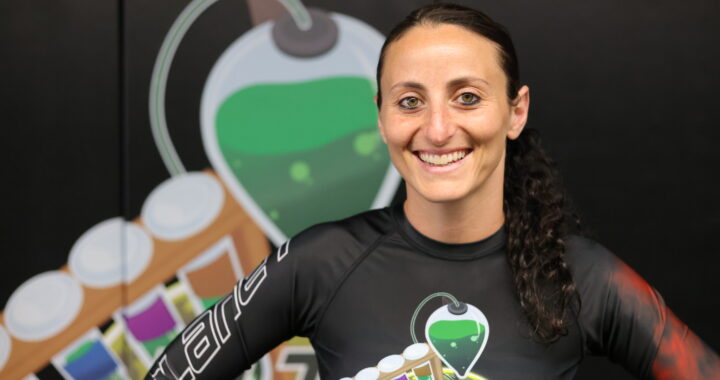 Lila Smadja-Cruz, Women’s NoGi Trailblazer
Lila Smadja-Cruz, Women’s NoGi Trailblazer 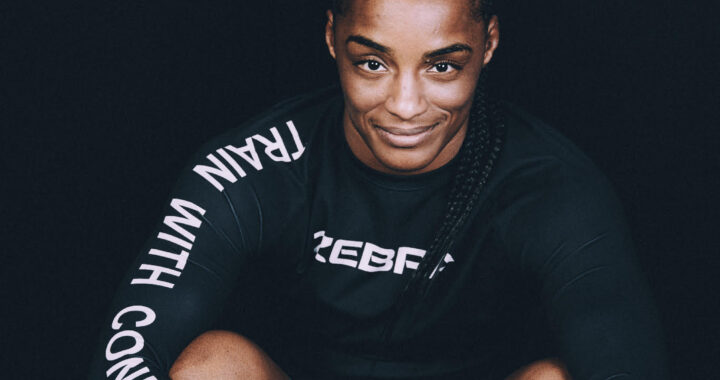 Akeela, The Warrior
Akeela, The Warrior 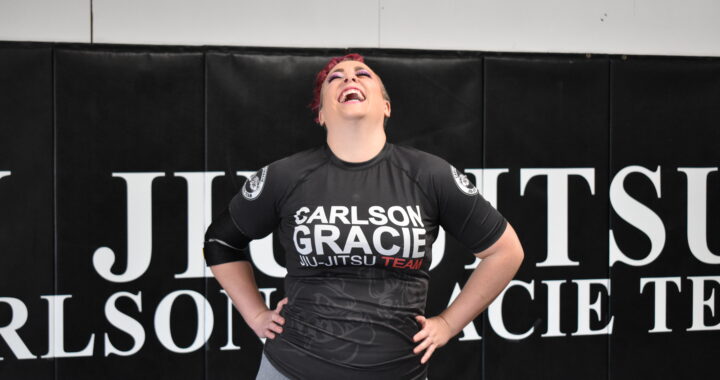 Our Beauty Queen
Our Beauty Queen 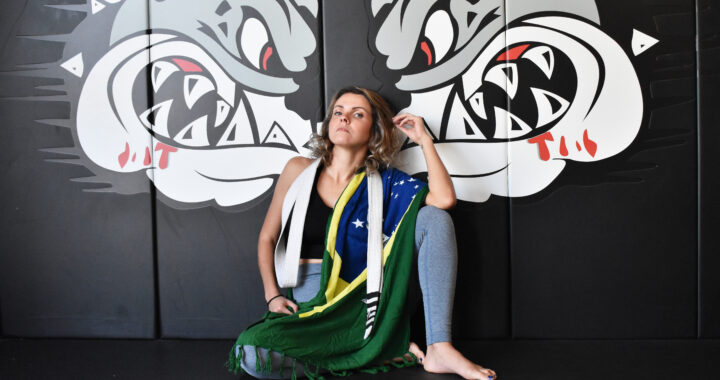 Made in Brazil
Made in Brazil 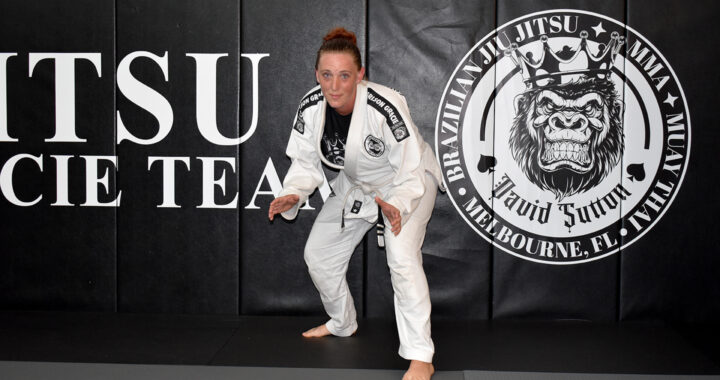 The Shield-Maiden
The Shield-Maiden 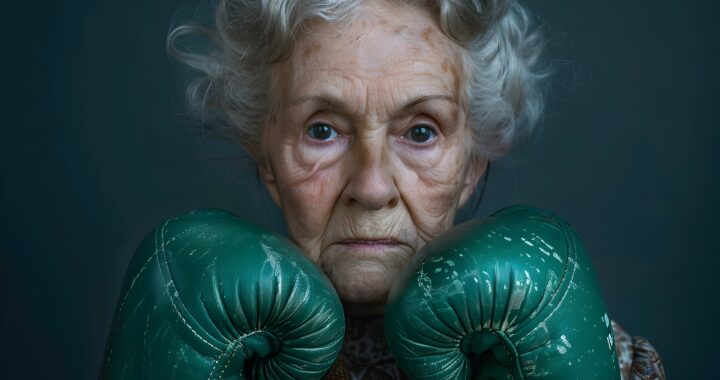 Father Time is Undefeated
Father Time is Undefeated 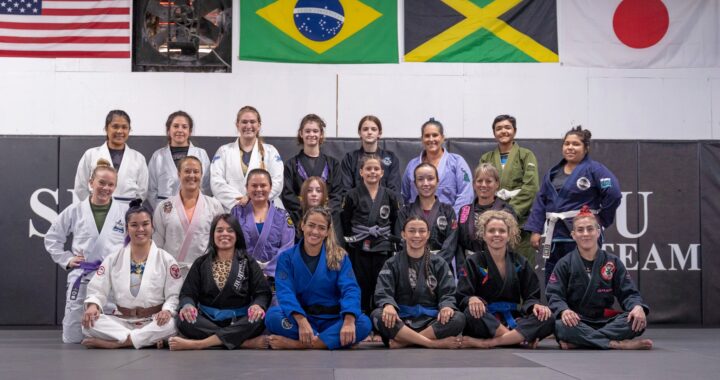 The Jiujiteira Sisterhood
The Jiujiteira Sisterhood 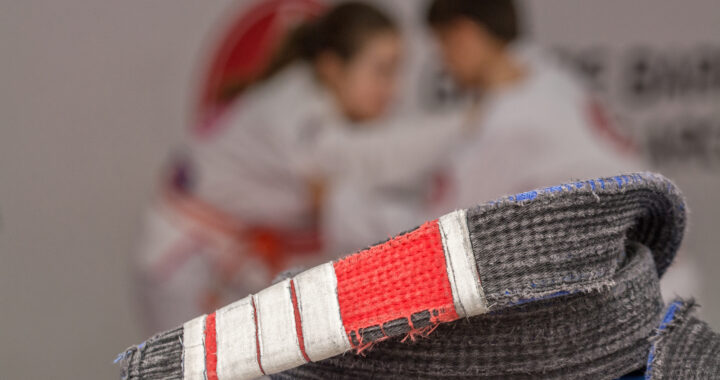 Advice in the Ranks- From White to Black
Advice in the Ranks- From White to Black  ADGS Rome: Jiujiteiras Shine in the Land of the Colosseum
ADGS Rome: Jiujiteiras Shine in the Land of the Colosseum